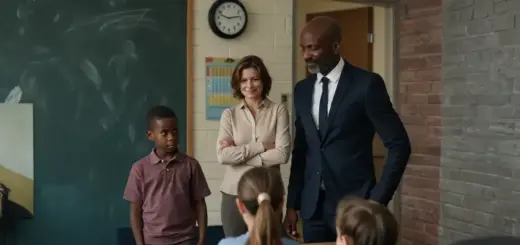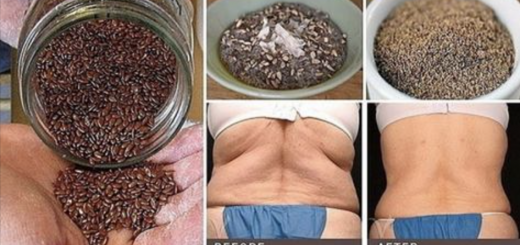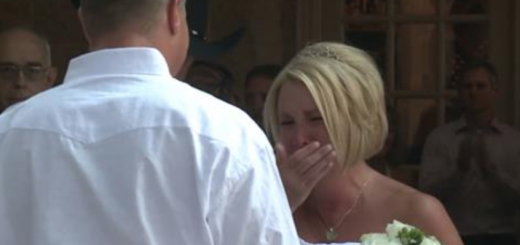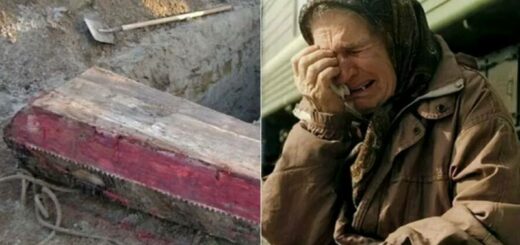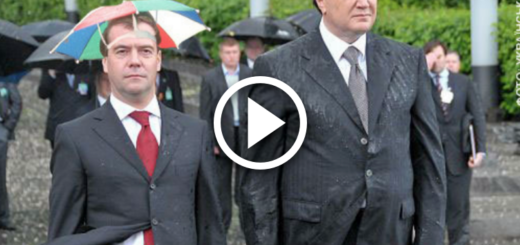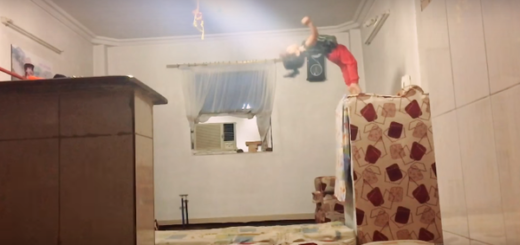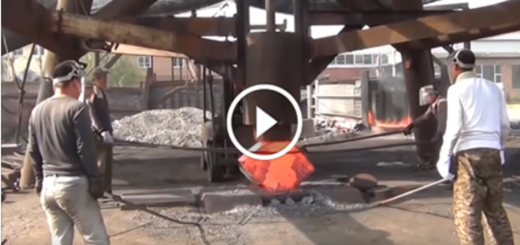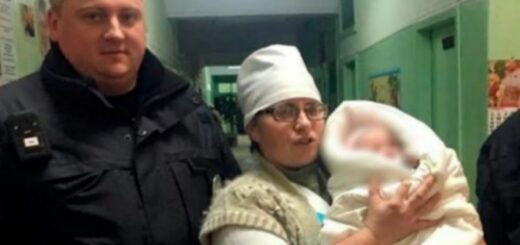I sold the construction equipment first—the excavator I’d saved three years to buy, the dump trucks, the crane—all the tools that let me take on bigger projects. I posted them online Sunday night and sold them by Wednesday. I had to call my clients and explain the delays this would cause. Mrs. Patterson was understanding.
“Vernon, take all the time you need. Family comes first.”
But the Riverside developers weren’t as kind. They pulled the contract and demanded their deposit back. Just like that, $60,000 in future profit vanished.
I had to let the crew go next, calling them into the office trailer on a Friday afternoon. These men had worked for me for years. They’d been at my kids’ birthday parties, my father’s retirement celebration.
“I gotta shut down for a while, boys. I’m sorry.”
Miguel, my best framer, shook his head. “We can work for less, boss. Take pay cuts.”
“It wouldn’t be enough. I need you to file for unemployment, find other work. When this is over, if you’ll have me, I’ll hire every one of you back.”
They filed out quietly. Chester stayed behind. “This isn’t right, Vern. Something feels off about all this.”
“Cancer doesn’t care about what feels right, Chess.”
The house went on the market in month three. The house I’d built with my own hands, where every wall held a memory. Colton found me standing in the workshop I’d added the year he was born.
“Dad, are we really moving?”
“It’s just temporary, son. When Mom gets better, we’ll build another house, a better one.”
“I don’t want a better one. I want this one.”
So did I, but the house sold in two weeks for $420,000. After paying off the mortgage, we cleared $300,000. It went straight to medical bills and the new treatment protocol. We moved into a two-bedroom rental apartment downtown. Piper had to share a room with her brother for the first time in her life. She didn’t complain, at least not to me, but I heard her crying at night through the thin walls.
My father came by the apartment one evening and saw me packing up my tools to sell. “Vernon, this has gone far enough. Let me help.”
“Dad, you and Mom need your retirement money.”
“We need our son more. Your mother agrees. We can give you $50,000.”
“I won’t take it.”
He slammed his hand on the table, something he hadn’t done since I was a teenager. “Damn your pride, boy! You’re drowning and won’t take a life preserver.”
“My wife, my responsibility.”
“Your family, our responsibility. That’s how this works.”
But I wouldn’t budge. Looking back, I wish I had. It would have saved more than money.
The wedding ring was the last thing to go. Three carats, platinum band, bought when I landed my first big construction contract. I’d promised Melody she’d never have to take it off. Now, I was taking mine off at Goldman’s Pawn Shop on Colfax Avenue. Mr. Goldstein, who’d known my family for forty years, looked at it sadly.
“Vernon, this ring has a story. Your grandfather bought the original band from my father in 1955. You had it reset for Melody.”
“How much can you give me?”
“It’s worth $8,000. I’ll give you $15,000.”
“I can’t take charity, Mr. Goldstein.”
“It’s not charity. It’s an investment in a good man having a bad year.”
I took the $15,000 and added it to the $10,000 I got for my father’s Harley, which I’d sold without telling him. That covered another month of treatment. Meanwhile, Melody was getting better, at least physically. The weight she’d lost made her cheekbones sharp, but her color was returning. Dr. Vance showed us scans where the tumors had shrunk dramatically.
“The treatment is working better than expected,” he announced. “I think we’re looking at full remission within two months.”
Melody cried with relief. I felt nothing but exhaustion. We’d won, but at what cost? I was down to nothing—no business, no house, no savings. But she was alive. That was supposed to be enough.
My brother, Dalton, pulled me aside at Sunday dinner. “Vern, something’s not right. Melody seems different.”
“She’s been through hell, Dal.”
“No, it’s something else. The way she looks at you, like she’s disappointed or something.”
“You’re imagining things.”
But he wasn’t. I just couldn’t see it yet. Or maybe I didn’t want to see it. When you’ve given everything for someone, you can’t afford to question if they were worth it. That kind of thinking could drive a man insane.
The same week Dr. Vance declared Melody cancer-free, she started getting text messages that made her smile. When I asked who she was talking to, she said it was her support group. “They understand what I’ve been through,” she said, not looking at me. “You wouldn’t get it.” I should have known then. The woman who’d shared everything with me for twenty years suddenly had secrets, but I was too tired to fight, too broke to think straight, and too relieved she was alive to question the distance growing between us.
Six weeks after Melody’s final clear scan, I came home from a day-labor job to find suitcases in our bedroom. She was folding clothes with the kind of precision she used when she was angry. The apartment smelled like her expensive perfume, the one she’d stopped wearing during treatment but had suddenly started using again.
“Mel, what’s happening? Are we going somewhere?”
She didn’t look up from her packing. “I’m leaving you, Vernon.”
The words didn’t make sense. I’d just spent fourteen months selling everything I’d worked for to save her life. We’d won. She was cancer-free. We were supposed to rebuild together.
“I don’t understand. Is this about the money? I’ll build it back, Mel. Give me time.”
She finally looked at me, and her eyes were as cold as January ice. “Look at yourself, Vernon. You’re pathetic, working day labor like some illegal immigrant, living in this dump, wearing the same three shirts because you sold everything else.”
“I sold everything to save your life.”
“And that’s exactly the problem.” She laughed, and it was a sound I’d never heard from her before—cruel and sharp. “A real man wouldn’t have lost everything. A real man would have found a way to keep his business, his house, his dignity.”
“A real man? I gave up everything for you.”
“No, you gave up everything because you’re weak. My lawyer, Brent Caldwell, now there’s a man who knows how to handle life. He saw my potential, saw what I could become without you dragging me down.”
Brent Caldwell. I knew that name. He was the divorce attorney with the billboard on I-25, the one that said, Take Him for Everything He’s Worth.
“You’re having an affair?”
“It’s not an affair when the marriage is already dead, Vernon. It died the day you sold our house, maybe before. I watched you scramble and beg for money, saw you groveling to that pawn shop owner, watched you fire your crew like a coward. It was disgusting.”
My hands were shaking now. “I was trying to save your life.”
“Well, congratulations. You saved it. And now I’m going to live it properly with someone who isn’t a complete failure.”
The divorce papers were already drawn up. She handed them to me like she was giving me a work invoice. “Brent says you’ll need to get your own lawyer, though I don’t know how you’ll afford one. I’m seeking full custody of the children, spousal support, and half of any future earnings from your construction business when you rebuild it.”
“You can’t take my kids, Melody.”
“I can and I will. They need stability, Vernon, not a father who lives in motels and works under the table for cash.”
My brother, Dalton, arrived within an hour of my call. He found me sitting on the apartment steps, divorce papers still in my hand. He read through them, his face getting redder with each page.
“This is insane, Vern. She can’t do this. You saved her life.”
“Apparently, that makes me weak.”
“We’re fighting this. I’ll call every lawyer in Denver if I have to.”
But lawyers cost money, and I had none. Legal aid assigned me a public defender named Patricia Moss, fresh out of law school and overwhelmed with cases. She reviewed my financial documents with the enthusiasm of someone reading a grocery list.
“Mr. Hutchins, you have no assets, no steady income, and you’re living in a space that wouldn’t meet custody requirements for two teenagers. Mrs. Hutchins has already moved into a four-bedroom house in Cherry Creek with Mr. Caldwell. He’s her divorce lawyer and now her fiancé, according to these documents. It doesn’t look good.”
The custody hearing was three weeks later. I wore my only suit, the one I’d kept for funerals. Melody showed up in designer clothes I’d never seen before, Brent Caldwell at her side like he’d already won. Judge Maureen Thornton presided. She was known for being fair but strict about children’s welfare.
Melody testified first, painting a picture of me as unstable, financially irresponsible, and possibly depressed. “He sold our family home without truly consulting me,” she told the judge, tears perfectly timed. “He made reckless financial decisions that left our children without stability. I’m concerned about his mental state.”
When my turn came, I tried to explain. “Your Honor, I sold everything to pay for Melody’s cancer treatment. The medical bills were over $300,000.”
“And where are those medical records?” Caldwell interrupted. “My client’s health information is private, but I can assure the court she would have survived with standard treatment. Mr. Hutchins chose to pursue excessive measures that bankrupted the family unnecessarily.”
“Excessive? She had stage-three cancer!”
Judge Thornton called for order. Then came the worst part. My children were brought in to testify. Colton wouldn’t meet my eyes. Piper stared at her hands.
“Would you prefer to live with your mother or father?” the judge asked.
Colton’s voice was flat, rehearsed. “Mom’s house is better for us. Dad can visit, but we need stability.”
Piper just nodded, tears streaming down her face. I wanted to scream that their mother had coached them, threatened them, but I had no proof. Patricia Moss didn’t object to anything. She seemed defeated before we’d even started.
The ruling was swift. “Given Mr. Hutchins’s current financial situation and living arrangements, I award full custody to Mrs. Hutchins. Mr. Hutchins will have supervised visitation every other weekend. Additionally, he will pay $500 monthly in child support and thirty percent of any future earnings exceeding $40,000 annually for spousal support.”
“Your Honor, I don’t even have $500.”
“Then I suggest you find employment quickly, Mr. Hutchins, or face contempt charges.”

